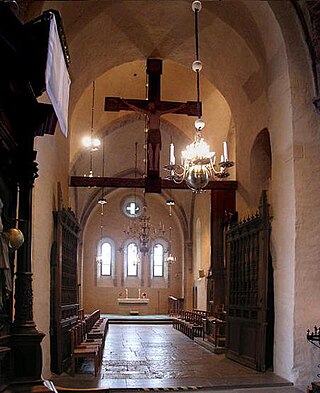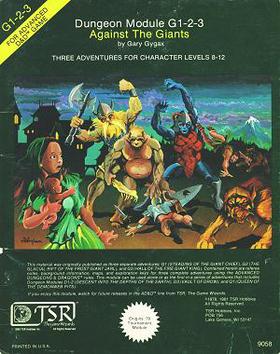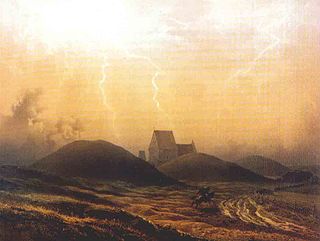Duke is a male title either of a monarch ruling over a duchy, or of a member of royalty, or nobility. As rulers, dukes are ranked below emperors, kings, grand princes, grand dukes, and sovereign princes. As royalty or nobility, they are ranked below princess nobility and grand dukes. The title comes from French duc, itself from the Latin dux, 'leader', a term used in republican Rome to refer to a military commander without an official rank, and later coming to mean the leading military commander of a province. In most countries, the word duchess is the female equivalent.
Halfdan the Old was an ancient, legendary king from whom descended many of the most notable lineages of legend. A second Halfdan the Old is the purported great-grandfather of Ragnvald Eysteinsson.

Earl of Orkney, historically Jarl of Orkney, is a title of nobility encompassing the archipelagoes of Orkney and Shetland, which comprise the Northern Isles of Scotland. Originally founded by Norse invaders, the status of the rulers of the Northern Isles as Norwegian vassals was formalised in 1195. Although the Old Norse term jarl is etymologically related to "earl", and the jarls were succeeded by earls in the late 15th century, a Norwegian jarl is not the same thing. In the Norse context the distinction between jarls and kings did not become significant until the late 11th century and the early jarls would therefore have had considerable independence of action until that time. The position of Jarl of Orkney was eventually the most senior rank in medieval Norway except for the king himself.
Dan is the name of one or more legendary earliest kings of the Danes and Denmark, mentioned in medieval Scandinavian texts.

Rígsþula or Rígsmál is an Eddic poem, preserved in the manuscript, in which a Norse god named Ríg or Rígr, described as "old and wise, mighty and strong,", fathers the social classes of mankind. The prose introduction states that Rígr is another name for Heimdall, who is also called the father of mankind in Völuspá. However, there seems to be some confusion of Heimdall and Odinn, see below.

Stenkil was a King of Sweden who ruled c. 1060 until 1066. He succeeded Emund the Old and became the first king from the House of Stenkil. He is praised as a devout Christian, but with an accommodating stance towards the old Pagan religion. His brief reign saw an armed conflict with Norway.
Haakon Sigurdsson, known as Haakon Jarl, was the de facto ruler of Norway from about 975 to 995. Sometimes he is styled as Haakon the Powerful, though the Ágrip and Historia Norwegiæ give the less flattering name Hákon Illi, that is, Haakon the Bad.

Ulf Thorgilsson, commonly known as Ulf Jarl, was a Danish jarl of Skåne and regent of Denmark. Ulf was the son of Thorgil Sprakling and the father of King Sweyn II of Denmark and thus the progenitor of the House of Estridsen, which would rule Denmark from 1047 to 1375, which was also sometimes, specially in Swedish sources, referred to as the Ulfinger dynasty to honor him.
Ragnvald, Rögnvald or Rognvald or Rægnald is an Old Norse name. Notable people with the name include:

Against the Giants is an adventure module written by Gary Gygax and published by TSR in 1981 for the Dungeons & Dragons fantasy role-playing game. It combines the G series of modules previously published in 1978: Steading of the Hill Giant Chief, Glacial Rift of the Frost Giant Jarl, and Hall of the Fire Giant King. All three were produced for use with the 1st edition Advanced Dungeons & Dragons rules. In 1999, to recognize the 25th anniversary of TSR, the company released an updated version, Against the Giants: The Liberation of Geoff. Later in 1999, Wizards of the Coast published a novelization of Against the Giants by Ru Emerson.
In Sweden, jarls were powerful noblemen. There usually was only one holder of the title at a time, second only to the King of Sweden.
Jarl is a rank of the nobility in Scandinavia. In Old Norse, it meant "chieftain", particularly a chieftain set to rule a territory in a king's stead. Jarl could also mean a sovereign prince. For example, the rulers of several of the petty kingdoms of Norway had the title of jarl and in many cases they had no less power than their neighbours who had the title of king. It became obsolete in the Middle Ages and was replaced by duke (hertig/hertug/hertog). The word is etymologically related to the English earl.
Astrid Njalsdotterof Skjalgaätten, was a Norwegian noblewoman who married Ragnvald the Old and became the ancestress of the Swedish Stenkil dynasty. She is sometimes assumed to have been a Swedish queen, though the evidence is inconclusive.

Horik II, also known as Hårik or, in late sources, Erik Barn, was King of the Danes from the fall of Horik I in 854 to an unknown date between 864 and 873. During his reign the Danish kingdom showed tendencies of breaking up. After his demise under unknown circumstances, Denmark entered a long period of obscurity, until the rise of the Jelling dynasty in the 10th century.

Angul or Angull was a legendary Norse king who, according to the Gesta Danorum, was the ancestor of the Angles in Denmark. His father was King Humbli, probably the same as Heimdall, one of Woden's twelve diar in Sigtuna and Gamla Uppsala in Sweden.
Þórir is an Icelandic given name. It may refer to:
Rögnvaldsson may refer to:
Hakon Jarl, Haakon Jarl, or variants, may refer to:






